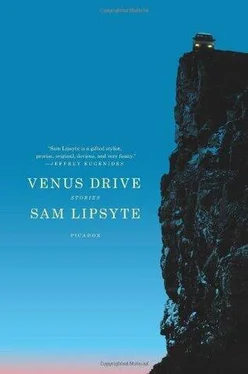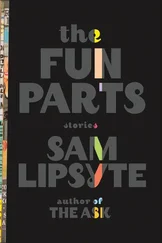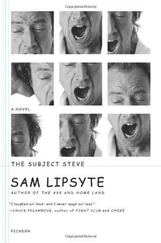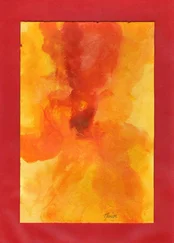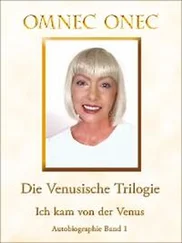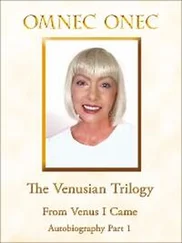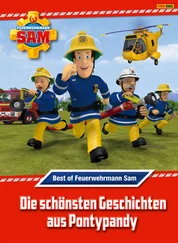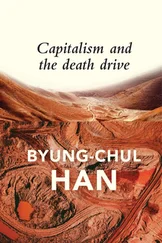“What I hope,” says another announcer, “is that moments like this will help promote international brotherhood through the majesty of the athletic endeavor.”
“Well put,” says the color man, “and well-hoped. But let us not forget that this is just a game.”
“But a hell of a game!”
“The beautiful game. You can see why from the slums of the far-away slums to the war-torn fields of warring lands, this is the world at play.”
“So simple, yet so complex.”
“A dance and a battle in one.”
“You fucking idiots!” Gary says to the screen, but it feels forced, as though he is just some man watching TV.
Maybe Lorraine is religious, thinks Gary, the inner roar of his ears on the wane. I could learn the words. I could sing of God.
There is one last O’Doul’s.
One day Gary chaperoned a field trip to the city’s science library. The kids unpacked their knapsacks and set to work. Gary loitered in the stacks, found a book about barbed wire. It had sketches of every variety, maybe named for the rancher who first knotted it that way. Scutt’s Clip. Corsicana Clip. Brotherton Barb. He thought he could do something with this, something creative, but he didn’t know what. Maybe a song with all the names of barbed wire in it. It would be good not to explain.
There was one boy in his charge they said might be trouble. It was a private school, so no one ever put it quite like that. What they said was that Vernon was a genius.
Now the boy sat alone at a silver table.
“Hey, man,” said Gary. “What’s wrong?”
“My homework,” said Vernon. “My fucking homework. I don’t want to do it right now.”
“I know where you’re coming from,” said Gary.
“Sure,” said Vernon.
“No, really,” said Gary.
“I bet you couldn’t even do my homework.”
“It’s not about whether I can do your homework. It’s about a feeling.”
“What a pile. Look at you. You’re not even a real teacher. What happened to you? I bet you’re over twenty.”
“I’m thirty-one.”
“See,” said Vernon. “If I’m anything like you at your age I’m going to kill myself. What do you think of that?”
“I think you ought to save yourself the hassle and do it now,” said Gary. “I was at a faculty meeting and your name came up. Turns out you’re not a genius, after all.”
“Liar,” said Vernon, but his voice wavered, and in a moment he was crying. Gary went back to his book. He felt terrible but harbored a secret hope that this moment would count for the genius as a minor scar. Someday Vernon would be accepting a prize at some institute and self-doubt would flare up in the guise of Gary, leering.
They are waiting for him at the park station uptown. He sees the trash sticks leaned up in a bucket. A woman ranger in a tight uniform leads him to a bench where some others sit. There are reams of flyers and boxes of envelopes piled on the floor. The flyers announce a summer program for kids, nature walks, rollerblading, marine biology by the lake.
“Are you still hiring for this?” says Gary, holding the flyer up.
“Oh, good,” says the ranger, “I was worried we wouldn’t have a comedian today.”
“No, really,” says Gary, “I’m qualified.”
“Fold,” says the ranger.
The others are younger than Gary, not white. Kids from nearby.
“You got a car?” says one of them, who has announced himself as Junebug.
“No,” says Gary.
“Well, if you did, what car would you get? A Lexus, right?”
“A Gremlin,” says Gary.
“A what?”
“It’s a cool car,” says Gary. “Like in a fucked-up way.”
“Gremlin? What’d you do, anyway?”
Gary tells them about the cart guy, the tomato crate, the cop. He doesn’t mention the cocaine.
“Hey,” says Junebug to the ranger, “Qualified Gremlin here threw down with a cop.”
“Well, he better not try any of that shit with me,” says the ranger. “I’ll put my foot in his ass.”
They fold flyers until noon, break, fold again.
“What about the garbage?” says Gary, finally. “Shouldn’t I go out into the park with one of those sticks?”
“Why, looking for a weapon?” says the ranger. She gives Gary a mop and points him to the toilet. The seats are gummed, the tiles caked with boot tracks.
“When it sparkles, you can go,” she says.
Gary sees the man with the leggings outside the bagel store.
“How’re the teeth?” calls Gary.
“What?”
“The teeth?”
“Look,” says the man, moves in, as though about to show Gary his mouth. “I’m not your homeless. Got it, fucker?”
Gary goes up to his place for a clean shirt. When he comes back down the man is sitting on a grate, cinching a seabag.
“No hard feelings,” the man says.
Gary holds out a buck and the man waves him off.
“I have other offers on the table right now,” the man says.
The bus is packed going over the bridge. Gary presses his head on the tinted window. He stopped at the bank on the way to the bus. The gods of the machine have wearied of him. The buyers are off at their bungalows, yoga retreats. He will have to borrow some money from his mother again.
It’s hot on the bus and everyone wears short sleeves except for Gary. He picks at the few tiny flecks of blood on his shirt with his fingernail.
Gary’s mother hugs him at the door.
“You look like you got some sun today. Out with the kids?”
“Yeah.”
His mother hooks him on his arm’s tender spot, guides him across the room. A group is gathered near the bay window, pouring whiskey.
“Boy, am I glad you came.” Today his mother has that almost dazed expression which, along with the featherings at her mouth, people take for mirth. “These people are drips. Put on any music you like.”
“I’m fine, Mom,” says Gary.
“Hey, there’s Jacob Gelb,” says his mother. “Remember him?”
Gary looks at the man, tall and tan, easy with his body in casual silk. Gary has that flicker of thought that comes along with his mother’s house: I wonder if I’ll turn out like him when I grow up. But Gelb is a few years younger. Gary remembers once putting worms in his hair, or firing an air pellet at his nuts, something senseless and maybe not forgotten.
“A drink?” says Gary’s mother.
“Just water.”
“Good for you.”
Gelb keeps a plastic cup aloft with his foot, his loafer. A woman sways down near him in a goalie pose, dangles her fingers out.
“Hey, Jake,” Gary calls. “Been watching the Cup? How about that Cameroon?”
Gelb looks up without missing a tap.
“Those guys are gone. Knocked out this morning, or last night, or whatever. My money’s on the Netherlands. The Goudas.”
Gelb kicks the cup into the fire place, throws his arms up, mugs, mimes the frenzy of thousands.
“I’d trade it all in for one good run at goal,” says Gelb. “When I have to go to Europe for work I just order up food and watch the leagues.”
“So cosmopolitan,” says the woman. “Going to a foreign country to watch sports on TV.”
“I go to make money. I watch sports to clear my head.”
“Same here,” says Gary.
“You’re Gary,” says the woman. “I’m Lorraine. I heard what happened to your friend. I’m sorry.”
“Thanks.”
“I’ve never heard your music, but people say it’s really interesting.”
“Oh,” says Gary. “I’m not playing anymore, anyway.”
“What are you doing?”
“Working with kids. Disadvantaged.”
“Wow, that’s great,” says Lorraine.
Gary tells her all about his little brothers Vernon and Junebug, their eventful day in the park, the nature walks, the craft hour. They talk for a while, mutual friends, traumas of youth. Lorraine writes Gary’s number in a day book stuffed with business cards.
Читать дальше
